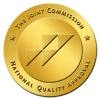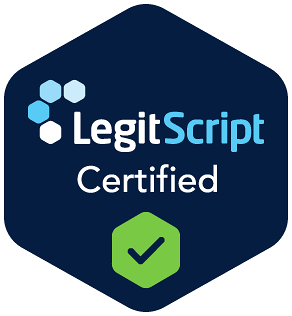Has your once-sweet child suddenly become someone you barely recognize? Does it feel like constant arguments, defiance, and aggression are now the norm in your home?
If you’re struggling to understand what’s going on with your teen, you’re not alone—many parents find themselves in the same boat when their son or daughter’s behavior spirals out of control. Luckily, there’s hope.
Conduct disorder (CD) is an often misunderstood condition, but treatment is available—and the experienced mental health professionals at Eagle View Behavioral Health can help your teen get the support they need to turn things around.
Conduct disorder is marked by a persistent pattern of aggressive, defiant, and rule-breaking behaviors. It’s important to understand that CD is a diagnosable disorder with specific criteria outlined in the American Psychiatric Association’s Diagnostic and Statistical Manual of Mental Disorders and not a reflection of poor parenting or a child’s inherent “badness.”
According to Yale Medicine, up to 3% of children and teens in the U.S. have conduct disorder—and the condition is twice as common in males. Teens with conduct disorder often have co-occurring mental health issues like depression, anxiety, or attention-deficit/hyperactivity disorder (ADHD), which can exacerbate the condition. Many have also experienced abuse, neglect, or other forms of trauma.
Conduct disorder falls within a spectrum of disruptive behavior disorders, which also includes oppositional defiant disorder (ODD). If ODD is left untreated, it may escalate into CD.
While conduct disorder shares some similarities with antisocial personality disorder (ASPD), it’s important to note that CD is diagnosed only in children and adolescents. If an adult meets the criteria for both conditions, they would receive a diagnosis of ASPD rather than CD.
Signs Your Teen Might Have Conduct Disorder
Although it’s normal for teens to make mistakes and challenge authority to some extent, consistent behavioral problems that disrupt daily life at home, in school, or in social situations could indicate a conduct disorder. Here are some signs that your teen might need a professional evaluation:
- Aggressive behavior towards others. Teens with conduct disorder may frequently bully, threaten, or start physical fights with peers or family members.
- Social isolation or problematic relationships. Your son or daughter might struggle to maintain friendships or gravitate towards peers who also engage in troublesome behaviors.
- Difficulty with authority figures. Teens with conduct disorder consistently challenge, defy, or disrespect parents, teachers, and other authority figures.
- Serious rule violations. This includes behaviors like staying out all night, running away from home, or skipping school regularly despite consequences.
- Cruelty to animals. Your son or daughter might hurt or torment animals without showing remorse or understanding the pain they’re causing.
- Destruction of property. This involves deliberately damaging or destroying others’ possessions or public property—often out of anger or for thrills.
- Lying. Teens with conduct disorder constantly lie to avoid responsibilities at school or the negative consequences of their actions.
- Stealing. Your son or daughter may steal items from stores, school, or family members.
- Lack of empathy or remorse. Teens with conduct disorder typically struggle to understand or care about others’ feelings and seldom feel guilty after misbehaving.
- Substance abuse. It’s common for teens with this mental health condition to abuse drugs and alcohol as a way to rebel.
- Poor academic performance. A sudden drop in grades or frequent disciplinary issues at school can be a red flag.
Treatment Options for Teens With Conduct Disorder
One of the most common myths about teens with conduct disorder is that stricter punishment will solve the problem. The reality is that harsh discipline often backfires. Professional treatment is usually necessary.
There’s no one-size-fits-all approach to treating conduct disorder, but several evidence-based options have shown promise. Here are some examples:
- Cognitive Behavioral Therapy (CBT). CBT is one of the most effective interventions for conduct disorder. It focuses on helping teens identify and challenge negative thought patterns and behaviors. Participants learn to replace harmful behaviors with more constructive ways of dealing with frustration, anger, and conflict. This approach also teaches problem-solving skills, emotional regulation, and impulse control.
- Parent Management Training (PMT). PMT teaches parents how to effectively manage their teen’s behavior through positive reinforcement, clear expectations, and appropriate consequences. Parents are empowered to take an active role in their child’s treatment and help create a more structured and disciplined home life.
- Social Skills Training (SST). SST helps teens improve their ability to interact positively with others. Teens with conduct disorder often struggle with interpersonal relationships, and this therapy teaches them how to manage conflict, understand social cues, and build empathy.
- Multisystemic Therapy (MST). MST is an intensive, community-based therapy that involves the teen’s family, school, and community. It addresses the multiple factors contributing to the teen’s behavior and creates a treatment plan involving various stakeholders in the teen’s life.
- Medication. While there isn’t a specific medication for treating conduct disorder itself, medication may be used as part of a broader treatment plan when a teen has co-occurring conditions such as ADHD, depression, or anxiety. As an example, prescribing stimulant medications for ADHD or antidepressants for mood disorders may help reduce symptoms that contribute to a teen’s behavioral problems.
At Eagle View Behavioral Health, we understand the challenges you’re facing. Our team of experienced professionals specializes in treating conduct disorder and other behavioral issues in teens. We offer a full range of evidence-based treatments tailored to your child’s specific needs.
Don’t wait for your child’s problems to escalate. Reach out to our Bettendorf, Iowa mental health treatment center today. Together, we can help your teen build the skills they need for a healthy, fulfilling future.







